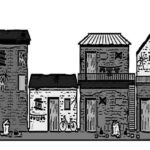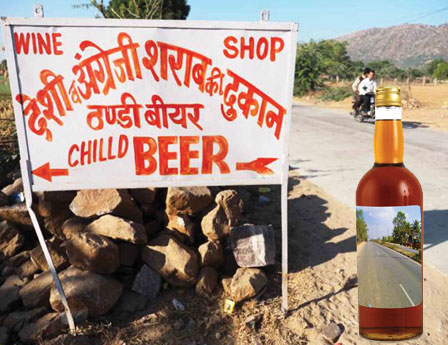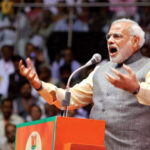ACCIDENTS are a common occurrence on the roads of the country. There can also be no denial that a large number of them-to the extent of almost 80 per cent-are attributed to the driver’s fault. As per the statistics incorporated by Ministry of Road Transport & Highways (MoRTH), in its report titled ‘Road Accidents in India 2015’, in almost 4-5 per cent of such cases the drivers were found under the influence of drugs/alcohol.
MoRTH, on the basis of statistics available, thought that easy availability of liquor along the highways is one reason for the drivers to consume alcohol and, therefore, it has issued numerous advisories to the State governments to not allow sale of alcohol/liquor within a distance of 220m from middle of State or National Highways. The Union Government even pronounced ‘Model Policy for Alcoholic Beverages and Alcohol’, which also included the said prohibition. However, those parts of National or State Highways which were situated within the limits of municipal corporation/city/town/authority having a population of 20,000 or more, were exempted from such prohibition.
As these advisories were not being followed by the State governments and the central government did not possess power to force them to follow such advisories, certain PILs came before some High Courts and then before the Supreme Court. The apex court, in a recent judgment, directed that no licence for sale of liquor should be granted on National and State Highways and that there should be no exception with respect to the stretches of the highways passing through any city, town, etc. It further said, the liquor vends should not be visible directly or indirectly from the highway for a distance of 500 metres.
These directions of the Supreme Court are likely to impact business of thousands of liquor shops, hotels, bars and restaurants which are in the vicinity of a highway and lakhs of others who are dependent on these businesses for livelihood. I feel that the natural justice demanded that a hearing to these affected people was also given before any such direction. A possibility should have been explored to find out if any middle path could be found. In India, most small towns are situated along the highways and the limit of 500 metres may take the whole town within its reach. In places like Goa, highways run through the city along the coastline and almost every beach hotel would be covered. Most good restaurants and hotels in towns are situated on such highways.
The basis of such directions is the statistics provided by MoRTH. These statistics may be questionable because anyone having an idea of police investigation in our country would know that while writing the FIR, every police officer would attribute the accident to the driver even before any evidence to that effect is found. Words like ‘Tej Raftari’ and ‘Negligence’ are very common. A negligible number is attributed in these reports to poor lighting, bad road conditions and stray animals. In fact, no accidents are attributed to the bad designs of the roads and road furniture-killer speed breakers, awkwardly and foolishly positioned barricades by police and civic authorities-or to the defective design of the vehicle itself. In the sixties, an activist lawyer named Ralf Nader had forced the US government to bring a legislation which recognised for the first time that the defective design of the vehicles involved could also be one of the causes of road accidents. India is still waiting for such a realisation, even though we have large number of ‘jugad’ vehicles plying even on highways and there are no laws to examine whether the design of the vehicle itself causes accidents or not. It is common to see vehicles catching fire without any fault of the driver. Even though the cycles, tractors, motor cycles and bullock-carts ply in the same lane, we still don’t recognise that the biggest reason for accidents is defective traffic management system and defective road design and conditions. We almost presume that in every such case of accident where the driver had consumed alcohol, it was because of alcohol only the accident happened. The statistics provided by the MoRTH, obviously therefore, can’t be the final word.
HOWEVER, I don’t wish to contest the fact that no one be allowed to drive after having consumed alcohol or drugs, whether it would cause an accident or not. The fact remains that alcohol kills, whether taken while driving or otherwise. Even chewed tobacco, which is available everywhere, causes enough intoxication. I will have no quarrel if the State wants to ban alcohol, cigarettes and tobacco per se? These substances cause a lot of stress on the resources of the country. But, can we be selective?
Question, therefore, can only be, how to deter consumption of alcohol while driving? The only reason given by the Supreme Court is that liquor vends on highways present a potent source for easy availability of alcohol. The point which has been missed by the court is that even if a liquor shop is shifted 500 metres away from highways, it is not likely to make any difference. These drivers are not kids that if we keep the chocolates in a locked almirah, they will not have them. They will find ways to get it? They will stock it even before starting the journey or will take a detour to fetch the drinks? They might shift to substances like cannabis or chewed tobacco.
At one place in the judgment itself, the Supreme Court has noted, “we are conscious of fact that the policy of the central government may not eliminate drunken driving completely. A driver of a motor vehicle can acquire liquor even before the commencement of a journey or during a journey at a place other than a National Highway. The law on preventing drunken driving also requires proper enforcement”. This observation shows there is no nexus between a driver operating under the influence of liquor and location of its vendor.
Any such judgment must be pronounced only after hearing all the affected parties. In places like Gurugram, virtually half the hotels will have to close. Will no motel in the country now serve liquor? Either we must totally ban these substances, or we cannot be selective.
The writer is a practicing Senior Lawyer in Delhi High Court



























































